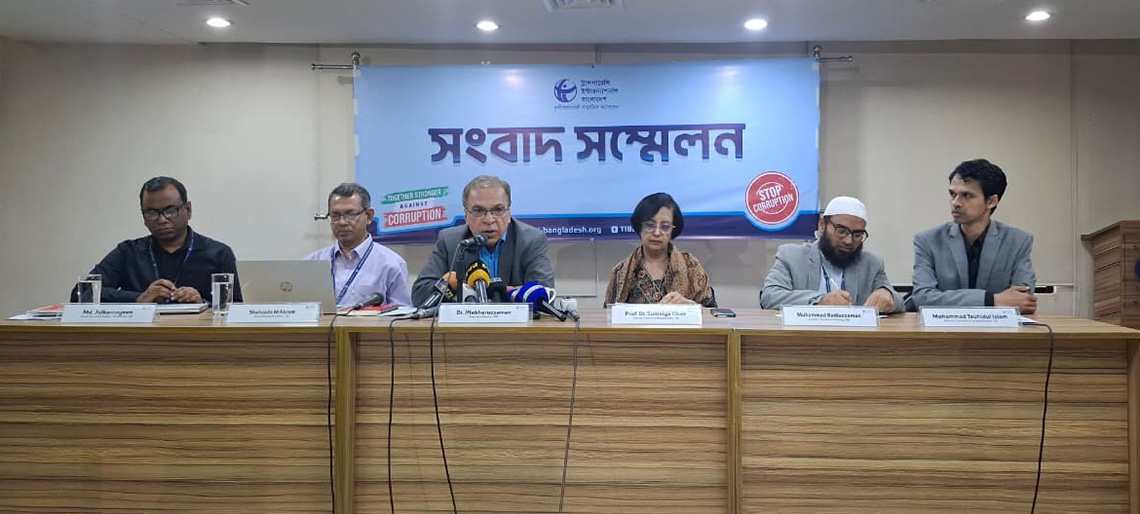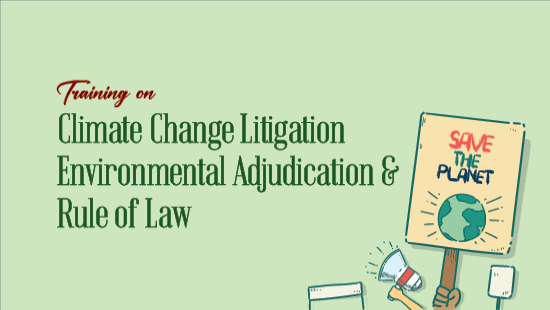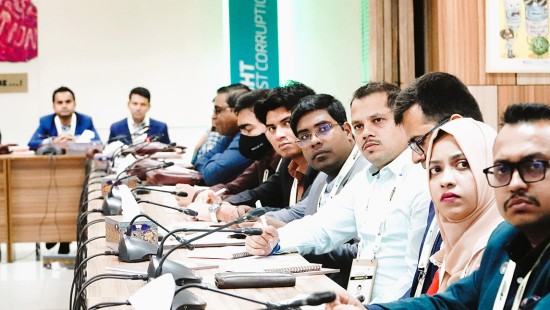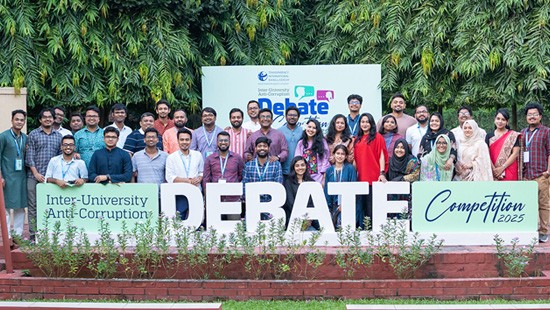Published: 07 August 2025
The previous government's authoritarian regime transformed the state into a kleptocracy, institutionalizing corruption through collusion among politicians, businessmen, and bureaucrats. This created monopolies while threatening freedom of speech and enabling illegal business practices and extortion, causing widespread public misery. The resulting frustration sparked a student-led movement embraced by ordinary citizens, ultimately toppling the regime and birthing a New Bangladesh.
One year has passed since the fall of the authoritarian government and the interim government assumed office with promises of comprehensive reform to reverse the previous regime's malpractices. The very students who spearheaded this historic change now serve as advisers. But what has actually changed in this pivotal year?
To address this question, Transparency International Bangladesh (TIB) conducted research titled "One Year After the Fall of the Authoritarian Regime: Expectations and Realities". As the first research organization to undertake such a comprehensive assessment, TIB's report carries significant weight given its extensive research and advocacy work supporting state reform throughout this period. The report presents a mixed picture. While acknowledging meaningful progress in judiciary reforms, election preparations, and various governance areas, it identifies major challenges when measured against good governance standards. These include the absence of rule of law and transparency, ad-hoc governance amid conflicts of interest, and normalized pressure from political leaders and activists engaged in partisanship, illegal occupation, extortion, and manipulation of legal processes in exchange for money. Conditional consensus among major power-seeking parties on fundamental reforms remains elusive, hampering commitments. A clear roadmap continues to be absent.
Bangladesh's political culture remains fundamentally unchanged—practices of partisanship, extortion, land-grabbing, and domination persist. This threatens the anti-discrimination movement's core spirit and the achievement of new political arrangements. The report also highlights ongoing challenges to information rights and freedom of expression. While civil society cooperation and criticism generally indicate a free environment, power abuses and imposed agendas by some groups hinder progress toward a non-communal, equal Bangladesh. Religion-based politics have grown notably over the past year.
Concerning the Anti-Corruption Commission (ACC), the report finds it remains politically influenced and biased in case filing and withdrawal. TIB expresses concern about proposed amendments allowing money laundering case settlements through compromise, warning this could encourage further laundering. A proposed Beneficial Ownership Transparency law designed to prevent such crimes has been largely overlooked, weakening anti-money laundering efforts.
TIB Executive Director Dr. Iftekharuzzaman observed that despite high expectations, state reform has been hampered by stagnation and regression. Some individuals who gained prominence through the movement now engage in favoritism and influence-peddling. The interim government lacked a clear strategy from the beginning, relying on ad-hoc decisions characterized by indecision and reversals under pressure from powerful interests. Reform commission recommendations remain blocked by bureaucratic resistance, while many previously excluded from power have adopted an "our time has come" mentality—perpetuating politicization from top offices to grassroots levels.
TIB's comprehensive assessment reveals a sobering reality: while the fall of the authoritarian regime created unprecedented opportunities for transformation, the promise of New Bangladesh remains largely unfulfilled. The interim government's failure to establish clear priorities and resist entrenched interests has allowed old patterns to resurface under new guises. Without immediate course correction—including genuine commitment to transparency, systematic implementation of reform recommendations, and decisive action against those exploiting the transition for personal gain—Bangladesh risks squandering this historic moment for change. The nation stands at a crossroads where meaningful reform must triumph over familiar cycles of exploitation to honor the sacrifices of the anti-discrimination movement.








